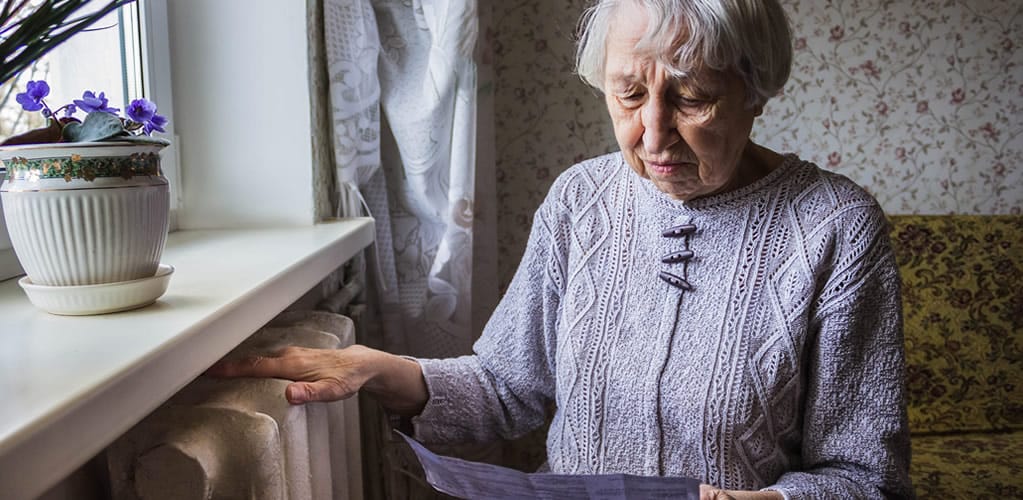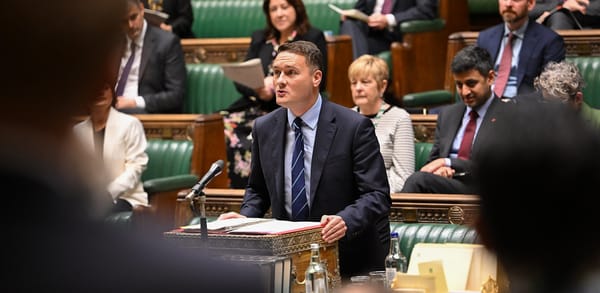Claiming the welfare benefits you are entitled to
There is a significant issue of welfare benefits going unclaimed in the UK, as people are often unaware of the help they can access. Here are much-needed information and guidance for consumers to know about the support they may be legally entitled to.

There is a significant issue of welfare benefits going unclaimed in the UK, as people are often unaware of the help they can access. Here are much-needed information and guidance for consumers to know about the support they may be legally entitled to.
First published: Sept 2022.
This is the second in a new series of articles that provide much-needed information and guidance about cost of living support and consumer rights. The first covered energy bill support and discounts, and is available here. Future pieces will cover disconnection and prepayment meters, and non-payment of energy bills.
There is a significant issue of welfare benefits going unclaimed in the UK, as people are often unaware of the help they can access. With the recent energy price cap hike, a cold winter ahead, and mounting energy prices leaving many people anxious about how to pay their bills, we want consumers to know about the support they may be legally entitled to.
There are two schemes specifically intended to help with energy costs: Winter Fuel Payments and Cold Weather Payments.
Winter Fuel Payments
Annual Winter Fuel Payments of between £100 and £300 are available to people aged 66 and above.
If you receive either a state pension or pension credit, you won’t need to apply for these payments as they will be automatically applied to you. If you don’t receive either, you may need to register a claim for Winter Fuel Payments.
Cold Weather Payments
Cold Weather Payments are weekly payments of £25 made to people on means-tested benefits between 1 November and 31 March. This is triggered when the average temperature in their area is recorded as, or forecast to be, 0°C or below over seven consecutive days. As with Winter Fuel Payments, the Cold Weather Payment should be automatically triggered.
If you receive Pension Credit, Income Support, Jobseeker’s Allowance, Employment and Support Allowance, Universal Credit, or Support for Mortgage Interest, you may be eligible for this. More information on eligibility.
Other available benefits
Other benefits that could ease the burden of bills are also available, despite not specifically being designed to tackle rising energy bills.
- The Personal Independence Payment is paid to people aged over 16 and under retirement age who live with long-term health problems or a disability. You can receive the Personal Independence Payment even if you work, have savings or receive other benefits. Learn more about how to claim it here.
- The Attendance Allowance is available to those in a similar situation but of retirement age; however, it does not cover mobility needs. Find out how to claim here.
- The Disability Living Allowance is similar to the Personal Independence Payment but is only available to under-16s. It includes care and mobility support. Find out more about this payment here.
- The Employment and Support Allowance is available to help people who have an illness or disability that impacts their ability to work. It provides financial support to help with living costs if they are unable to work, and support to get them back into work if they are able to. More information on the Employment and Support Allowance, including how to claim it, can be found here.
- The main means-tested benefits (Universal Credit and Pension Credit) are also often underclaimed and are generally payable at a higher rate where members of the household are disabled. Check if you are eligible for Universal Credit or Pension Credit.
Information about the current rates of all the benefits mentioned above is available here.
IN THE SAME SERIES:



Direct deductions
Direct deductions can normally be made to your benefits through the Third-party Deductions Scheme. This allows the cost of energy debts, and any other payments in arrears, to be taken from benefit payments when a creditor, such as an energy company, applies for a deduction through the Department of Work and Pensions.
However, during this period of unprecedented energy prices, currently only claimants can request new deductions or increased payments for ongoing consumption to be taken from their benefits, not suppliers.
When consented to, it can help people manage their money and also prevent energy companies from taking their own action, for example installing a prepayment meter. It can also cause a number of problems. Direct deductions can be triggered without a person’s permission, leading to money being taken from their benefits without their consent.
A maximum of three deductions can be taken from a benefit payment. Each deduction is usually five percent of the basic standard allowance, but it can be more.
The scheme is in the process of being considered by the High Court with the person bringing the case arguing that making deductions without giving notice to the consumer is unlawful and serves the interests of utility companies more than consumers.
Citizens Advice have more information on this here.
Discretionary Housing Payments
If you receive welfare benefits but do not have enough money to pay both your rent and energy bills, you may be able to apply for Discretionary Housing Payments, on the basis that your financial resources are unable to meet your housing costs (even if in practice you are meeting them by foregoing other essential needs).
As energy bills rise, Discretionary Housing Payments can be a way to fill the gap left by inadequate welfare benefits provision. They can be an important tool to help people in energy poverty cope.
If you are experiencing issues with your welfare benefits, we suggest you contact your local Law Centre or Citizens Advice. They may be able to help you with your specific situation.

This article is based on guidance commissioned by Good Law Project from Adam Straw QC, of Doughty Street Chambers, and Tom Royston, of Garden Court North.
The information, content and material above are intended as a general guide, are subject to change and do not constitute any form of legal advice. They should not be relied on or treated as a substitute for specific advice relevant to your particular circumstances. Moreover, not all of the above support may be available across the entire UK.
GOING FURTHER:

|

|

|
— AUTHORS —

|
▫ Good Law Project, a not-for-profit campaign organisation that uses the law to protect the interests of the public. ⚖️ GoodLawProjectonly exists thanks to donations from people across the UK. If you’re ina position to support their work, you can do so here. |
Sources
- Text: This piece was originally published in GoodLawProject and re-published in PMP Magazine on 14 September 2022, with the authors’ consent. | The authors write in a personal capacity.
- Cover: Adobe Stock/Solarisys.






[Read our Comments Guidelines]